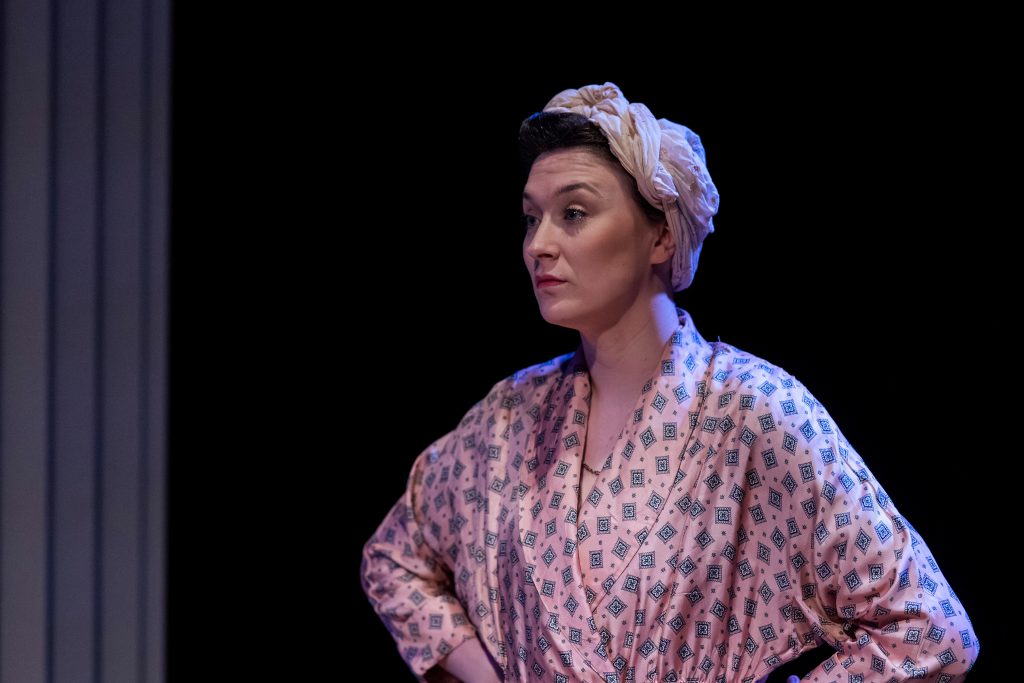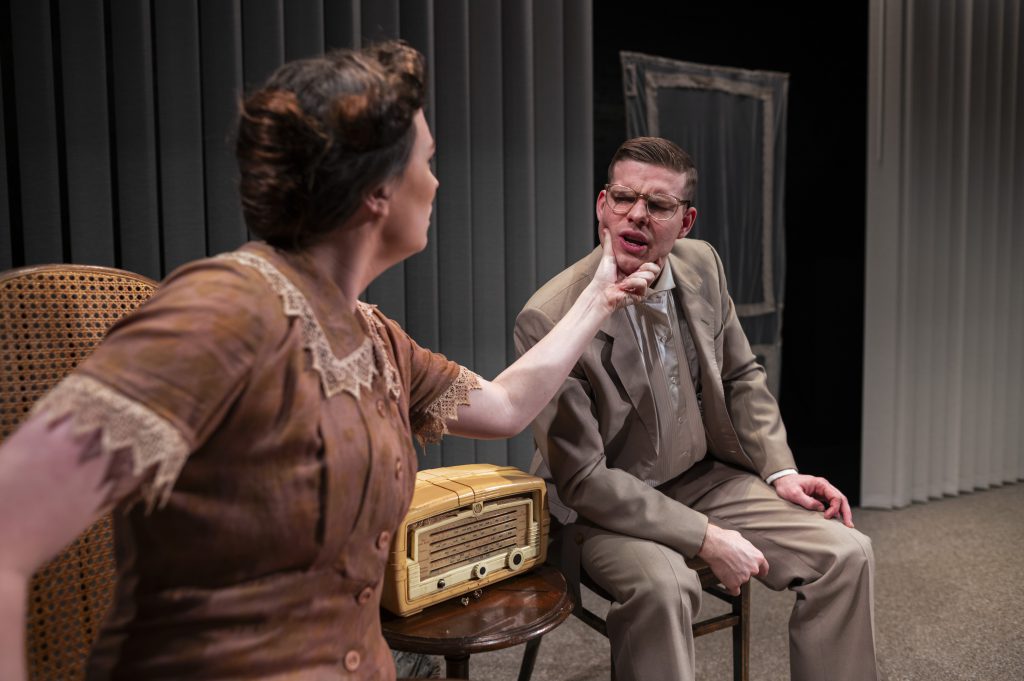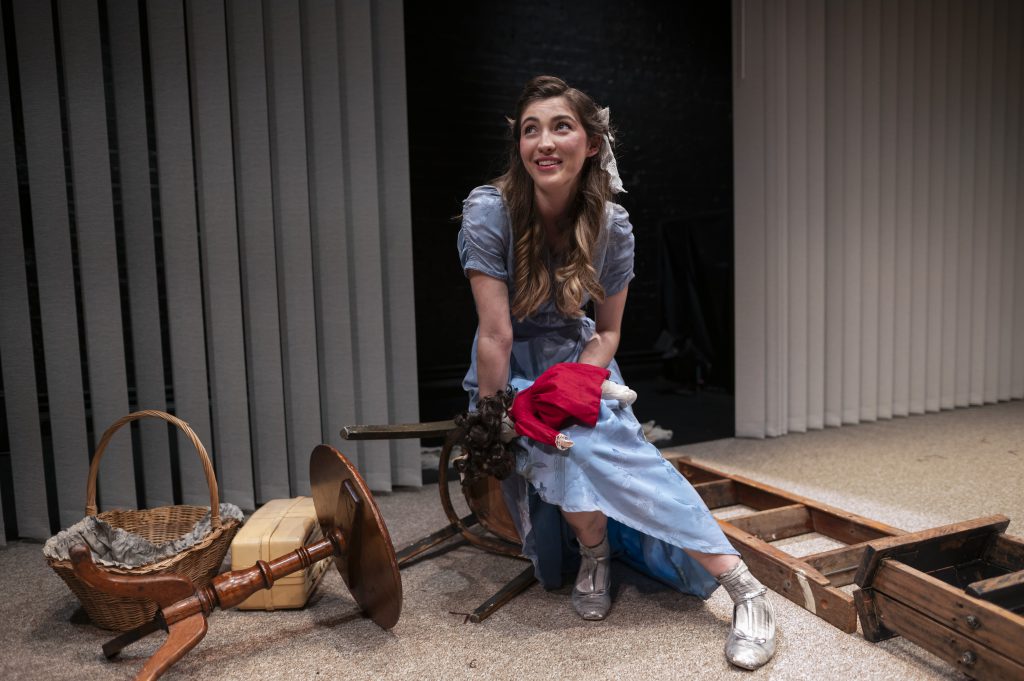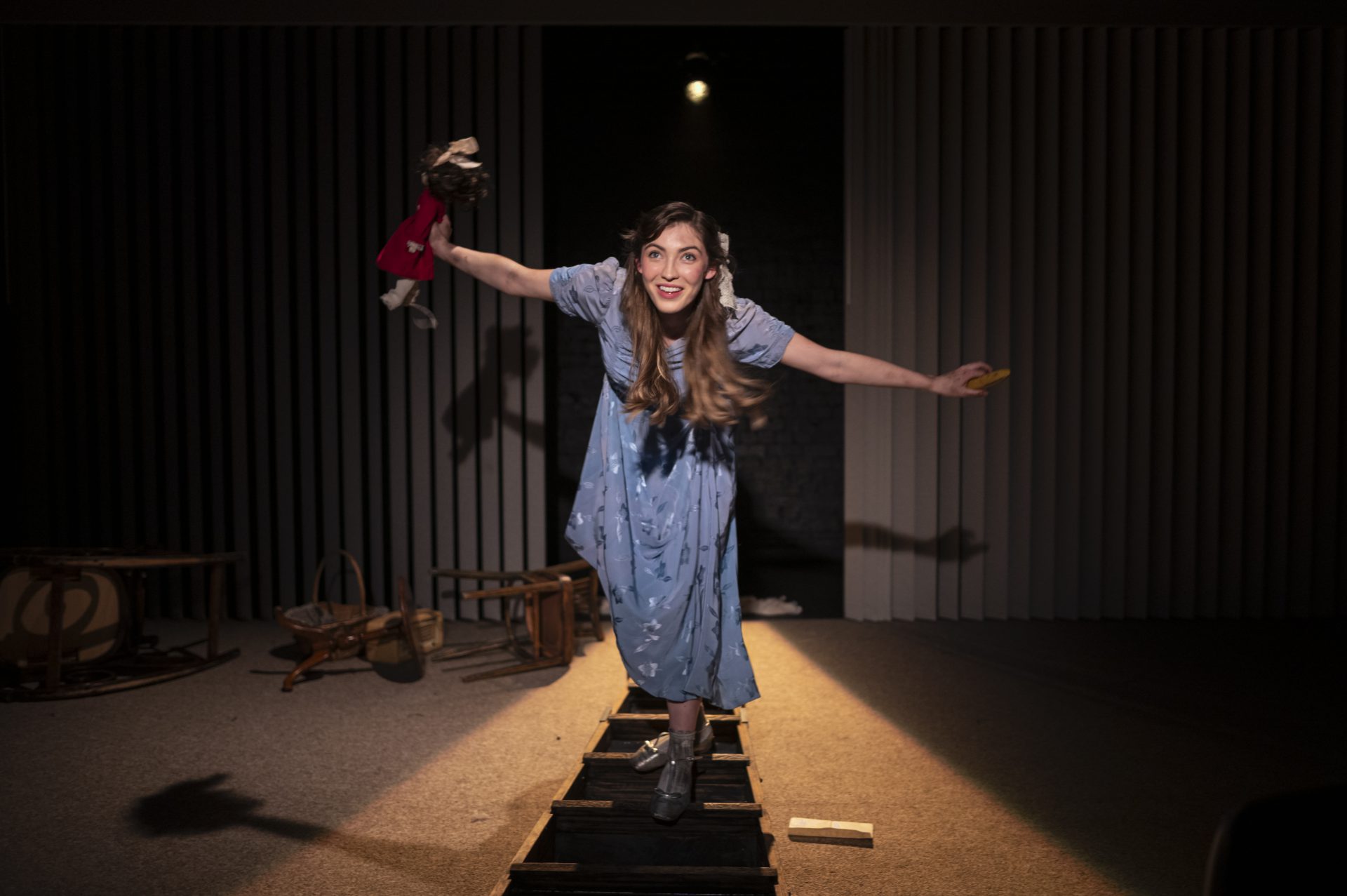Three plays in 40 minutes? Satisfying, but limited.
Three Plays, produced by Ground Floor Theatre Company and playing at the Old Fitz Theatre, is a whirlwind production of Tennessee Williams’ lesser known plays. Squeezing three such plays into less than an hour’s run time, it achieves its vision of sharply distilling the themes of youth, hope, and desperation for more than one is given. Though it improves with each play, this distillation means its themes are unfortunately given finite time to resonate – reducing their overall impact.

Three Plays is directed by Megan Sampson and reproduces Williams’s plays At Liberty, Auto-Da-Fe, and This Property is Condemned. These run one after another uninterrupted, bar two short set changes. The cast of Helena Cielak, Will Manton, and Emma Wright adopt each play’s roles.
At Liberty is a lacklustre start. Focusing on an argument between struggling actress Gloria Le Greene and her mother, who disapproves of her lifestyle and career, Cielak and Wright put on good Southern accents in their respective roles, but they start the play with garbled dialogue. Both try hard to pick up from this, displaying some reasonable chemistry as their characters quarrel, but this opening performance lacks tension from the outset. The idea of “youth” is somewhat present, but this missing element means the opening play lacks the impact it could have had.

Emma Wright and Manton Hall in Three Plays. Photo credit Robert Miniter.
Auto-Da-Fe plays out differently. Concerning a mother and son’s response to a lewd photo mistakenly received by the latter, Wright and Manton perform with great comic skill. Manton’s facial expressions draw laughs before he performs his first line, and Wright’s hysterical reactions are fantastic. The script itself is also incredibly funny, and offers a great comparison between how such content was responded to in the 1940s versus how it may be considered now. It packs more punch than At Liberty.
The production’s final play, This Property is Condemned, finishes on a high. The most intense of the three performances staged, it is a simple discussion about the life of Willie (Cielak), a young girl thrust into the adult world after the loss of her older sister, and Tom (Manton), a wary boy playing hooky for the day. Manton again plays up the script’s comedy, and Cielak balances this nicely with a more thoughtful, downcast performance.

Ground Floor Theatre Company’s decision to stage three plays in one production is interesting. The productions are obviously vignettes, providing brief snippets and bursts of the visions underlying them. Sampson’s decision to focus on the stories, employing sparse lighting design and minimal set pieces, makes this clear. Though such bursts are entertaining, the overall experience feels somewhat insubstantial. The obligation to jump from one play to the next means that the “whirlwind” moves too quickly for each play’s themes to be fully felt. As a result, Three Plays does not leave any major impact. The cast are sound, but the power that one act plays can have – especially those by Tennessee Williams – is not fully realised. The entertainment value is there, but there isn’t much beyond that.
Ultimately, Three Plays presents what says it will. Though it picks up the further along it progresses for a satisfying conclusion, it could offer more depth holistically.
